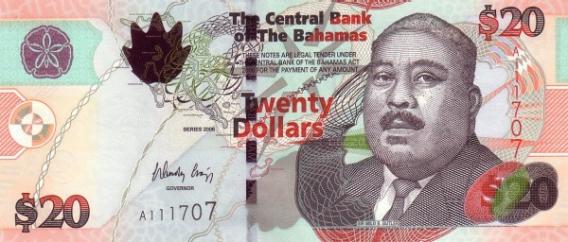 The December 11th edition of The Tribune reported the comments of Timothy B. Donaldson on the devaluation talk appearing in the media. He stated that it “made no sense at all”.
The December 11th edition of The Tribune reported the comments of Timothy B. Donaldson on the devaluation talk appearing in the media. He stated that it “made no sense at all”.
While one can agree with him that devaluation does not make sense, one can strongly disagree with his reasoning. He is quoted as saying that countries devalue in order to build a competitive edge “if you have [an] export driven economy”. But he limits this proposition to merchandise exports and not services. This is an apparent error. The Bahamas is a services driven export economy; and costs do directly affect the ability of the Bahamas to deliver those services at competitive prices.
Two examples are the effects of the eleven financial bills of Christmas 2000. Take a small law firm (or a private bank) that perhaps has only one lawyer and a group of clients who rely on that lawyer (or private bank) for a wide range of services including “financial” services as defined in the bills. That lawyer (or private bank) must now hire and house a Compliance Officer, build a new customer data base, file reports, install new audit procedures, deal with bureaucrats, etc. These added costs do either of two things: drive the lawyer into some other form of employment (the private bank to another jurisdiction) or cause him (or it) to not comply and wait for the consequences. Costs do matter in providing services and Mr. Donaldson knows this.
Generally countries do not devalue to build a competitive edge; there is no mystery; they devalue to become competitive again. Look at Argentina and Mexico. From time to time both have pegged their currencies to the dollar and maintained inflationary regimes that progressively increased local costs so as to drain entirely the profits from exports. Devaluation was forced by the demand for dollars that their central banks could no longer supply. This cycle has fifty years of history in Latin America.
Relative to other countries the Bahamas has a record of relative “macro economic” stability. However, the persistent building of Bahamian Dollar debt now limits the freedom to take action that would help the country. One of those is removing the exchange controls on capital since diversification of the portfolios that presently hold that debt could cause a currency crisis. Furthermore, the present deficit may even double this year. Without firm direction and management there is the danger of it spinning out of control and causing macro economic instability.
Mr. Donaldson is quite right, a fifty percent devaluation “would double the price of everything we import.” More specifically it would cut the standard of living of every Bahamian on a Bahamian dollar income at least in half. As in all devaluations, it would be expected that the initial adverse income effect on the people would be reduced as exports recovered and the economy grew. Once again, there is no mystery here. That is what devaluations do.
However, the immediate impact of such a devaluation is much greater in the Bahamas than in Latin American countries because those countries are less dependent on imports for essentials. What also normally happens after a devaluation is that there are an upward pressure on wages and a government effort to limit such pressure. This is the kind of situation that the Bahamas can and should avoid.
Nevertheless, the Bahamas is a high cost country; these high costs do adversely affect service exports; and the fiscal management of the country is in question. Mr. Donaldson could do the country a service by addressing these issues.


